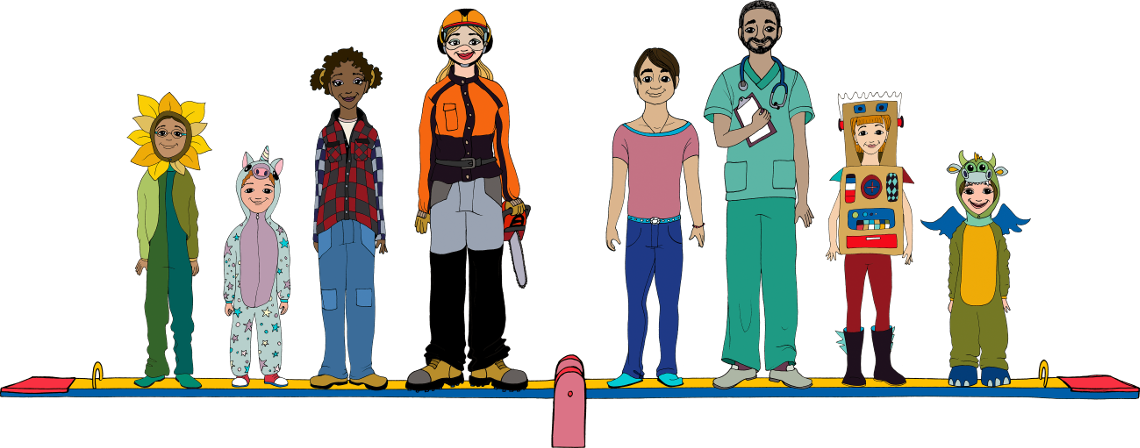Goals

Brief description of the issue
Fighting homophobia and bullying is a priority across schools of the province. Homophobia is often rooted in gender stereotypes dictating what should be considered as masculine or feminine, with the goal of reinforcing others’ endorsement of gender stereotypes. Yet, youth having the strongest buy-in of gender stereotypes are the ones who drop out of school the most. It is therefore crucial to break down gender stereotypes to foster school retention and to create a homophobia-free environment.
It is sometimes difficult for educators to be aware of all the situations happening between students and to see if a situation is really problematic, i.e. to which extent the impacts on the victims are important. For example, a situation that can seem unproblematic to a heterosexual teacher, but in the eyes of a gay or trans student, it is really problematic and has concrete consequences. It can therefore be difficult to act rightfully.
However, it is crucial to act every time. Indeed, recent research has clearly shown that homophobia, transphobia and gender-based harassment are the main factors of bullying in school and that they are harmful to all students. Studies reveal that homophobic and transphobic comments or gestures still go unnoticed by adults working with youth.
To better understand those sometimes ambiguous situations and to know how to act respectfully with LGBT students, here are a few activities and training sessions that can be done with the school team:
- Workshops on sexual and gender diversity: information, resources & strategies. These training workshops are offered at your school by the LGBT Family Coalition to get to know sexual diversity and its vocabulary, and to better interact with homoparental families and LGBT students.
- Organizations to invite to your workplace (for students and/or school staff): This module lists Québec-based organizations that will come to your school or youth organization and carry out activities for students or professional development for staff. Many of these organizations provide their services free-of-charge.
- Homoparental families and homophobia: Institutional climate survey: Before taking a specific course of action, a school’s current attitudes, practices and progress must first be evaluated. The following survey can help you to assess where your school stands in the fight against homophobia and the inclusion of homoparental families.
- How to create more inclusive environments for youth: There are so many ways that educators can create environments that are welcoming and inclusive to all youth regardless of their sexual orientation, gender identity or family constellation. This section provides resources for background knowledge, suggested actions to take, and tips and tools to create positive change.
- Five awareness-raising activities to carry out amongst colleagues: these activities have been designed to help spark discussion on how to fight homophobia and become more inclusive of homoparental families. The exercises can be used as part of a training session, or simply as informal activities between colleagues (for example, over a lunch break).
- How to establish inclusive and non-discriminatory policies: intended for school principals, this guide allows to work at the policy level to create inclusive policies that encourage a nondiscriminatory environment.
- Best practices: Seven areas of intervention in the school community to better meet the needs of homoparental families: This module is meant to offer administrators and school personnel, as well as all professionals working in schools, suggestions and action plans to help better meet the needs of parents and children in their institutions.
